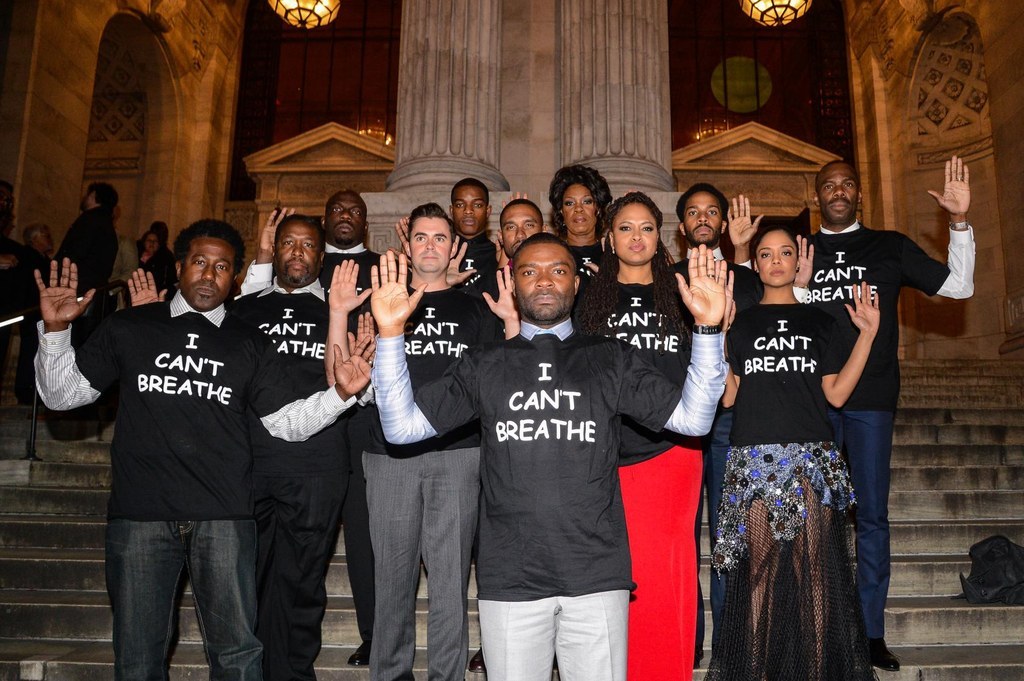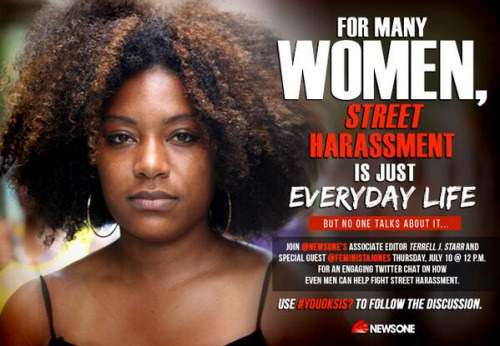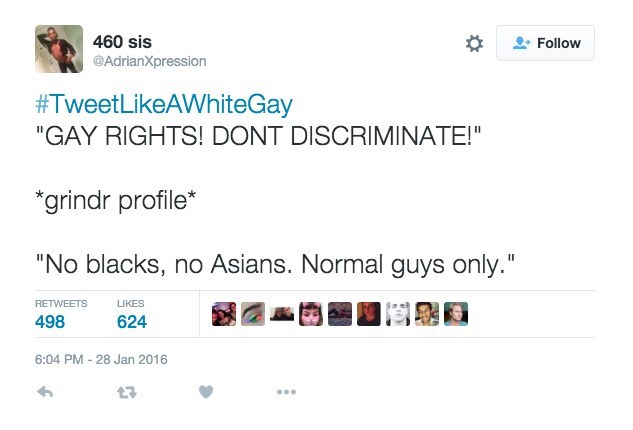1. BlackLivesMatter
Now let's be serious. We all have heard this term so many times. It speaks of the value of black lives in every aspect of life. Many people have responded with the "All Lives Matter" phrase, but just know that people would not say this if Black Lives Matter was not a thing.
What began as an impromptu love letter to black people on Facebook following George Zimmerman's acquittal in Trayvon Martin's death quickly turned into a national rallying cry in cities across the country that were fed up with the seeming disposability of black life. #BlackLivesMatter has since evolved into an epic hashtag, an informal call to action and a formal network with dozens of chapters in cities across the United States and in Canada.


The impact was explosive: Over the past three years, Black Lives Matter has not only become the definitive rallying cry against racial injustice in the U.S. and shorthand for a protest movement that's galvanized North America, but a leading justice organization as well.
2. NotYourCostume
Halloween has become an annual trauma for people of color, especially on college campuses where racist frat parties make national headlines each school year. In 2011, a group of students at Ohio University decided to speak out against the geishas, the Fridas and the blackface that has become the norm on Halloween. They started a campaign that raised awareness of the fact that their cultures are not costumes, one that included both pointed posters and morphed into a hashtag that has resurfaced every year.

3. ICantBreathe
"I can't breathe" were the last three words Eric Garner spoke as he was put in a chokehold by NYPD Officer, Daniel Pantaleo. After Garner's death, a grand jury chose not to indict Pantaleo and Garner's famous last words became a rallying cry for the movement online and offline. The cast and crew of Ava DuVernay's Selma wore shirts with the phrase to the New York premiere of their film in 2014, days after the jury decided to let Pantaleo go scot-free.

4. YesAllWomen
After a May 2014 shooting at the University of California, Santa Barbara, the killer's video manifesto showed the shooter's extremely misogynist beliefs. However, when the media chose to cover 22 year old Elliot Ridger as a mere glitch in the system. They said it was a monstrous and heinous act with no precedent. Rather than an outright misogynist who targeted women, the media depicted him as a young man with a problem of mental illness and that this shooting was an isolated incident.
Judging by the chilling YouTube video Elliot Rodger left behind, the gunman knew exactly what he was doing when he went on a shooting rampage with a semi-automatic. Frustrated by the fact that women, inferior creatures he felt like he was entitled to, rejected him romantically, he decided to get even.
"It's not fair. You girls have never been attracted to me. I don't know why you girls have never been attracted to me, but I will punish you all for it. It's an injustice, a crime, because I don't know what you don't see in me. I'm the perfect guy, and yet you throw yourselves at all these obnoxious men, instead of me, the supreme gentleman."
"I will punish all of you for it," he said before erupting in an almost satanic laugh.
"On the day of retribution, I will enter the hottest sorority house of UCSB, and I will slaughter every single spoiled stuck up blonde slut I see inside there. All those girls that I've desired so much, they would have all rejected me and looked down upon me as an inferior man if I ever made a sexual advance towards them. While they throw themselves at these obnoxious brutes. I'll take great pleasure in slaughtering all of you. You will finally see that I am in truth the superior one. The true Alpha Male."


5.

6. YouOkSis
When Twitter user Feminista Jones saw a woman with a stroller being accosted, she asked her three words that became an online movement: You OK, sis? While all women are subject to street harassment, the hashtag campaign sought to highlight the experiences of women of color, who are often left out of conversations around harassment. When #YouOKSis planned its first Twitter chat, it was even trolled by men online who felt the conversation was divisive.

7. WhatLatinosLookLike
After a white New York Times writer published a controversial piece claiming a growing number of Hispanics in the U.S. were identifying as "white," Hispanics on Twitter clapped back. Using the hashtag #WhatLatinosLookLike, people from across the Latin American diaspora shared selfies celebrating the beautiful, complicated and often messy diversity of Latino identity — and in many cases, its proud rejection of whiteness.

8. AmINext
Until the election of Prime Minister Justin Trudeau, the Canadian government had proven extremely neglectful toward one of its aboriginal population's biggest concerns: An estimated 4,000 indigenous have disappeared on been murdered since 1980, accounting for 16% of victims despite being just 4% of the country's female population.
Tired of being ignored, indigenous women took to Twitter in September 2014 and posted photos of themselves with the hashtag #AmINext? — a question to then-PM Stephen Harper asking how many more of them needed to die or go missing until he decided to take action.
Since then, Harper has been ousted and Trudeau has announced a full-blown government inquiry into the missing and murdered women.

9. NotYourAsianSidekick
23-year-old freelance writer and activist Suey Park ignited a massive Twitter conversation on Asian-American feminism with the hashtag #NotYourAsianSidekick. The purpose of the hashtag, as Park explained, was to enable Asian-Americans to publicly share their stories.
At first, the discussion focused on the oppressive patriarchy that exists in Asian-American communities, and the exclusive nature of white feminism.
Soon, the hashtag spurred a broader talk about various Asian-American struggles.
Similarly, Park and some other activists have largely framed the Asian-American struggle as a byproduct of white privilege and white ignorance, without always providing historical or social context for these claims.



10. TweetLikeAWhiteGay
A hashtag on Twitter is either going to make you feel like a praise-hands emoji, an upside-down smiley or a red-hot face.
The gay community has its share of problems — be it transphobia, sizeism or Islamophobia — and Twitter users brought light to a few of them with the hashtag #TweetLikeAWhiteGay.
A lot of the tweets addressed the well-known racism in the gay community, especially when it comes to dating and hookup apps.
Many Twitter users took umbrage with the amount of slang — see: "Yaaass!" — white gay men use that may have been appropriated from black women and black gay men. Many of the tweets came from black women, as well.
Many people of color spoke about the challenges presented by being both LGBTQ and POC, including erasure and visibility.
The overall themes are long-standing ones that people have been working to confront for years. No community, gays included, are immune from racism, transphobia and other social ills. Hopefully, those who feel implicated by the tweets can work to make them false rather than shrug and dismiss them.




